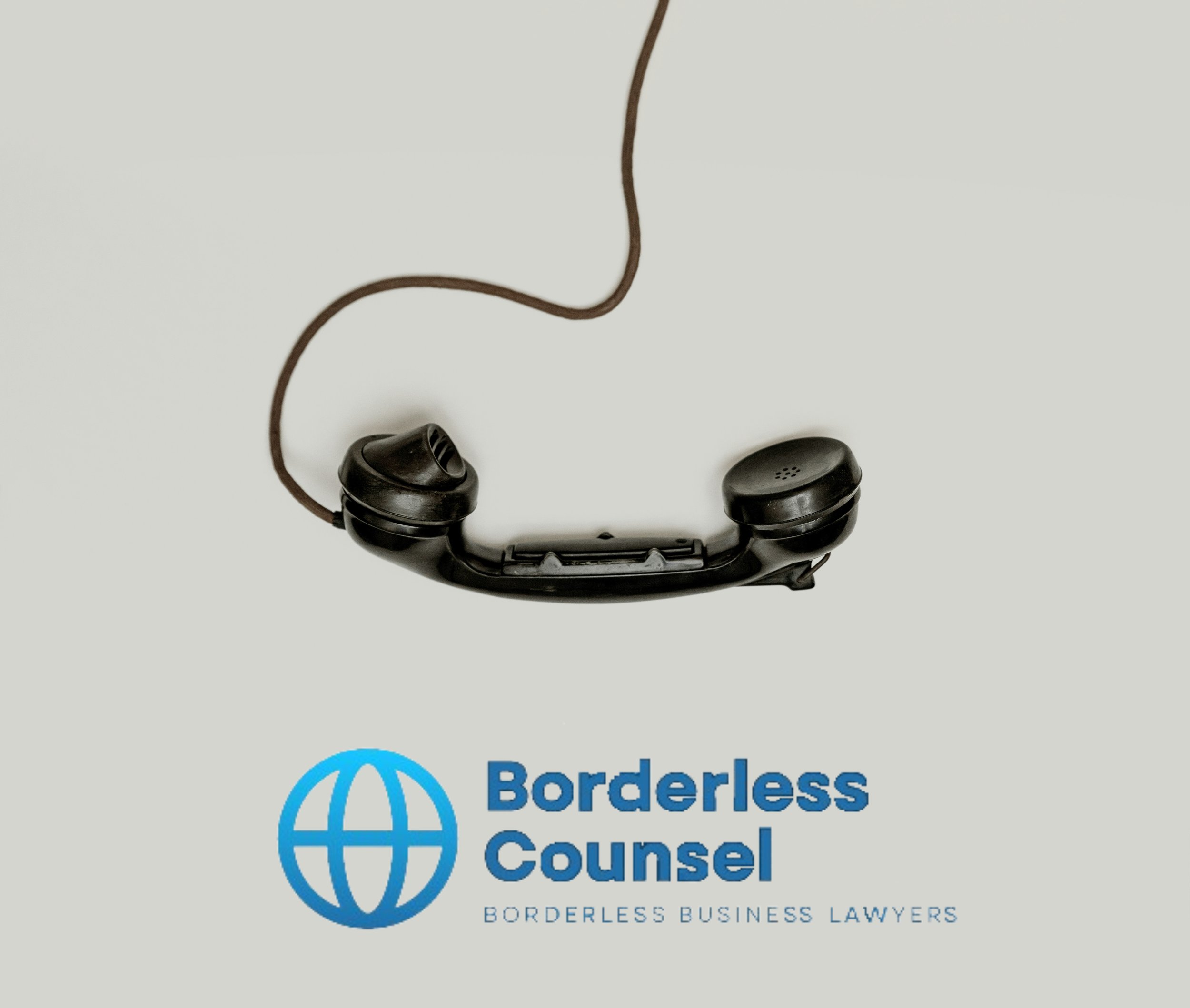When Should You Call a Lawyer?
As an entrepreneur, you’re no stranger to wearing multiple hats—visionary, strategist, marketer, and sometimes even a makeshift legal expert. While it’s admirable to embrace a hands-on approach, certain situations call for the expertise of a lawyer. Making the right call at the right time can save your business significant time, money, and stress. Here’s a guide to help you identify those critical moments.
1. Choosing the Right Business Structure (U.S. Entities)
The foundation of any business is its legal structure. In the U.S., choosing between an LLC, C-Corp, or other entity types can significantly impact taxation, liability, and even your ability to attract investors.
When to call a lawyer:
You’re unsure which structure best fits your U.S. business goals.
You want to understand the tax and legal implications of forming an LLC or C-Corp in the U.S.
Why it matters:
An attorney familiar with U.S. entity formation can guide you through the nuances of state and federal requirements, draft the necessary formation documents, and ensure compliance. This minimizes the risk of errors that could lead to fines, dissolution, or unnecessary tax burdens.
2. Drafting and Reviewing Contracts
Contracts are the backbone of any business relationship, whether you're setting up vendor agreements, negotiating with clients, or onboarding employees. Poorly drafted contracts—whether in the U.S. or internationally—can expose your business to risks such as disputes or breaches.
When to call a lawyer:
You need to draft agreements for U.S.-based vendors, employees, or clients.
You’re presented with a contract involving terms or obligations you don’t fully understand.
Why it matters:
A lawyer can identify legal risks, clarify ambiguous terms, and protect your interests. For U.S. businesses, this includes ensuring compliance with federal and state laws, especially regarding employment or service contracts. A well-drafted agreement reduces the likelihood of disputes, wherever your business operates.
3. Protecting Intellectual Property
Your intellectual property—trademarks, copyrights, and patents—represents a significant portion of your business's value. In the U.S., the process for securing rights and handling infringement involves navigating federal systems such as the USPTO.
When to call a lawyer:
You’re creating or registering a trademark or patent in the U.S.
You suspect someone is using your intellectual property without authorization.
Why it matters:
A U.S. trademark attorney can guide you through the registration process, ensuring your filing is complete and accurate. Infringement cases require quick, strategic action to safeguard your assets and maintain your competitive edge.
4. Managing Employment and HR Issues
Hiring employees in the U.S. comes with unique legal obligations, from adhering to federal employment laws to drafting state-compliant contracts. Missteps in this area can lead to penalties or lawsuits.
When to call a lawyer:
You’re onboarding U.S. employees or engaging independent contractors.
You face employment disputes, such as wage claims or wrongful termination allegations.
Why it matters:
U.S. labor laws are complex and vary by jurisdiction. A lawyer can help ensure your policies and practices comply with these regulations, reducing your exposure to potential lawsuits.
5. Handling Business Disputes
Business disputes can arise from partnerships, clients, or contracts. Whether your operations are U.S.-based or global, unresolved conflicts can drain resources and tarnish your reputation.
When to call a lawyer:
A dispute escalates, and you’re considering legal action.
You want to explore mediation or arbitration.
Why it matters:
A skilled lawyer can help you navigate the U.S. legal system or alternative dispute resolution mechanisms, working toward a cost-effective resolution.
6. Expanding or Selling Your Business
Growth often brings legal complexities, particularly in the U.S., where mergers, acquisitions, and interstate expansions have unique regulatory considerations.
When to call a lawyer:
You’re negotiating a sale, merger, or acquisition in the U.S.
You’re expanding into new states or dealing with cross-border transactions.
Why it matters:
A lawyer can ensure that agreements comply with state and federal laws, safeguarding your interests and minimizing liabilities.
7. Responding to Legal Threats
Legal threats, whether from lawsuits or regulatory investigations, can quickly escalate. In the U.S., responding strategically and in accordance with local laws is critical.
When to call a lawyer:
You receive a lawsuit or demand letter in the U.S.
A government agency initiates an investigation into your U.S. operations.
Why it matters:
A U.S.-based lawyer can guide you through the legal process, protecting your rights and minimizing potential damage.
Knowing when to call a lawyer isn’t about being overly cautious; it’s about being proactive and strategic. Whether you’re forming a business entity in the U.S. or handling contracts, intellectual property, or disputes globally, addressing legal issues early is often less expensive and more effective.
At Borderless Counsel, we specialize in helping entrepreneurs navigate U.S. corporate law, trademark protection, and immigration challenges. Whether you’re launching a startup, managing growth, or resolving a dispute, we’re here to provide tailored solutions.
Need advice? Let’s talk! Contact us today for a consultation and see how we can save your business time, money, and stress.
